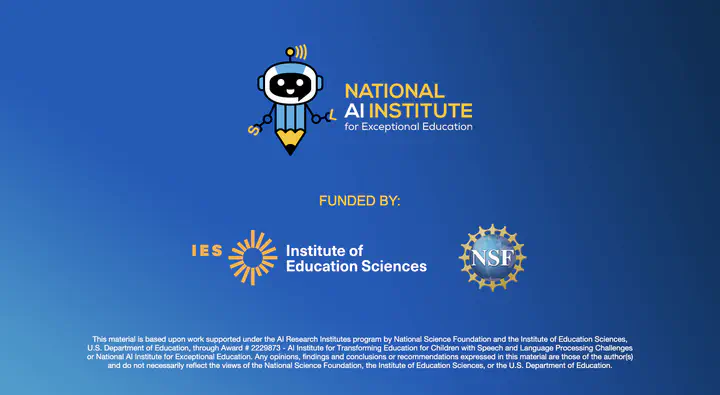 Image credit: Limeng Cui
Image credit: Limeng CuiAbstract
Discover the groundbreaking insights from Jason Lucas, Dr. Carol Miller, and Suhas Nagaraj at the ‘Research in Action’ alumni program. Their presentation explored the transformative role of AI in advancing speech and language therapy for children. Delving into challenges such as data scarcity and privacy concerns, the team showcased how AI, through multimodal learning and federated learning, can significantly improve the reach and quality of therapy services. This work represents a significant stride in ethical and effective use of AI for enhancing children’s lives.
Date
Sep 9, 2023 9:00 AM — 10:00 AM
Location
Penn State University
201 Old Main, University Park, Pennsylvania
Click on the Slides button above to view the built-in slides feature.
Slides can be added in a few ways:
- Create slides using Hugo Blox Builder’s Slides feature and link using
slidesparameter in the front matter of the talk file - Upload an existing slide deck to
static/and link usingurl_slidesparameter in the front matter of the talk file - Embed your slides (e.g. Google Slides) or presentation video on this page using shortcodes.
Further event details, including page elements such as image galleries, can be added to the body of this page.